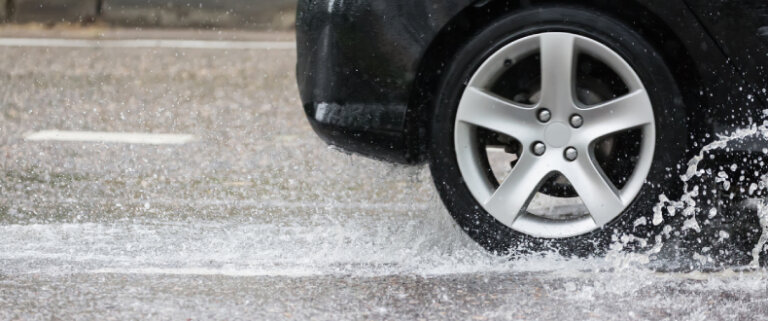In the blink of an eye, Mississippi’s serene roads can turn treacherous. Imagine a heavy downpour transforming the asphalt into a slippery battleground. Now, picture yourself behind the wheel, navigating those drenched highways. How well-prepared are you to face the dangerous blend of wet roads and speeding? It’s essential to understand the risks that this perilous combination poses and equip yourself with knowledge that could prove crucial in safeguarding your journey.
The Impact of Wet Roads
Wet roads may seem innocuous at first glance, but their impact on driving conditions is far from trivial. The moisture from rain, sleet, or even morning dew can significantly alter the dynamics of the road. Reduced tire traction is a primary concern when the pavement is wet, making it easier for vehicles to lose control during acceleration, braking, or turning.
Hydroplaning is a frightening phenomenon where a layer of water builds up between your tires and the road, causing a sudden loss of control. This risk is especially high when speeding, as your tires are less effective at dispersing water. Additionally, wet roads reduce visibility, increasing the chances of accidents due to reduced reaction times. The combination of reduced traction, hydroplaning, and decreased visibility underscores the importance of exercising caution when driving in wet conditions. Slowing down, maintaining a safe following distance, and using headlights and turn signals become essential to mitigate these risks and ensure road safety.
The Risks of Speeding
Speeding poses significant risks on Mississippi’s roads. When you exceed the posted speed limits, you compromise your safety and the safety of others around you. First, higher speeds reduce your ability to react to sudden obstacles or changes in traffic conditions. This diminished reaction time can result in severe accidents that could have been avoided with responsible driving.
Secondly, speeding significantly increases the force of impact during a collision. The faster you travel, the more energy is transferred upon impact, leading to more severe injuries and damage to the vehicles involved. Moreover, it can be challenging to control a speeding vehicle, mainly when road conditions are less than ideal, such as on wet roads. This exacerbates the likelihood of losing control and causing accidents.
Lastly, speeding also attracts harsh penalties and legal consequences, including fines, points on your driving record, increased insurance rates, and even license suspension in some cases. To protect yourself and others, always obey posted speed limits and drive at a safe and reasonable speed.
Wet Roads + Speeding = Increased Danger
When you combine wet roads with speeding, you create a recipe for disaster on Mississippi’s highways. Wet roads already reduce traction, making it easier to lose control of your vehicle. Now, imagine the added velocity of speeding. It’s a dangerous equation that exponentially increases the risk of accidents.
Speeding on wet roads magnifies the chances of hydroplaning, causing loss of control. Braking effectiveness decreases, and steering becomes unpredictable, putting you on a collision course. Reduced visibility due to the rain also compounds the danger, making it harder to react to hazards quickly.
In essence, wet roads demand cautious driving, and speeding flies in the face of caution. It’s a recipe for disaster, jeopardizing not only your safety but also the safety of fellow drivers and passengers. In wet conditions, it’s always better to arrive late than never. Slow down, stay safe, and avoid the perils of this lethal combination.
Staying Safe on Wet Roads
To stay safe on wet Mississippi roads, follow these crucial steps. First, reduce your speed and maintain a safe following distance to allow for increased braking distance. Use your headlights and turn signals for better visibility. Avoid sudden lane changes and aggressive maneuvers. Ensure your tires are in good condition, as worn treads worsen traction issues. Lastly, drive with extra caution in areas prone to flooding, and always be prepared to adjust your driving to the ever-changing conditions presented by wet roads.
Legal Help for Accident Victims
In the unfortunate event of an accident due to wet roads and speeding, legal help is essential. Our experienced team at Chatham Gilder Howell Pittman will guide you through the complex legal process, advocating for your rights and seeking compensation for your injuries and damages. We’re here to ensure you receive the support you deserve during this challenging time. Contact us today.

